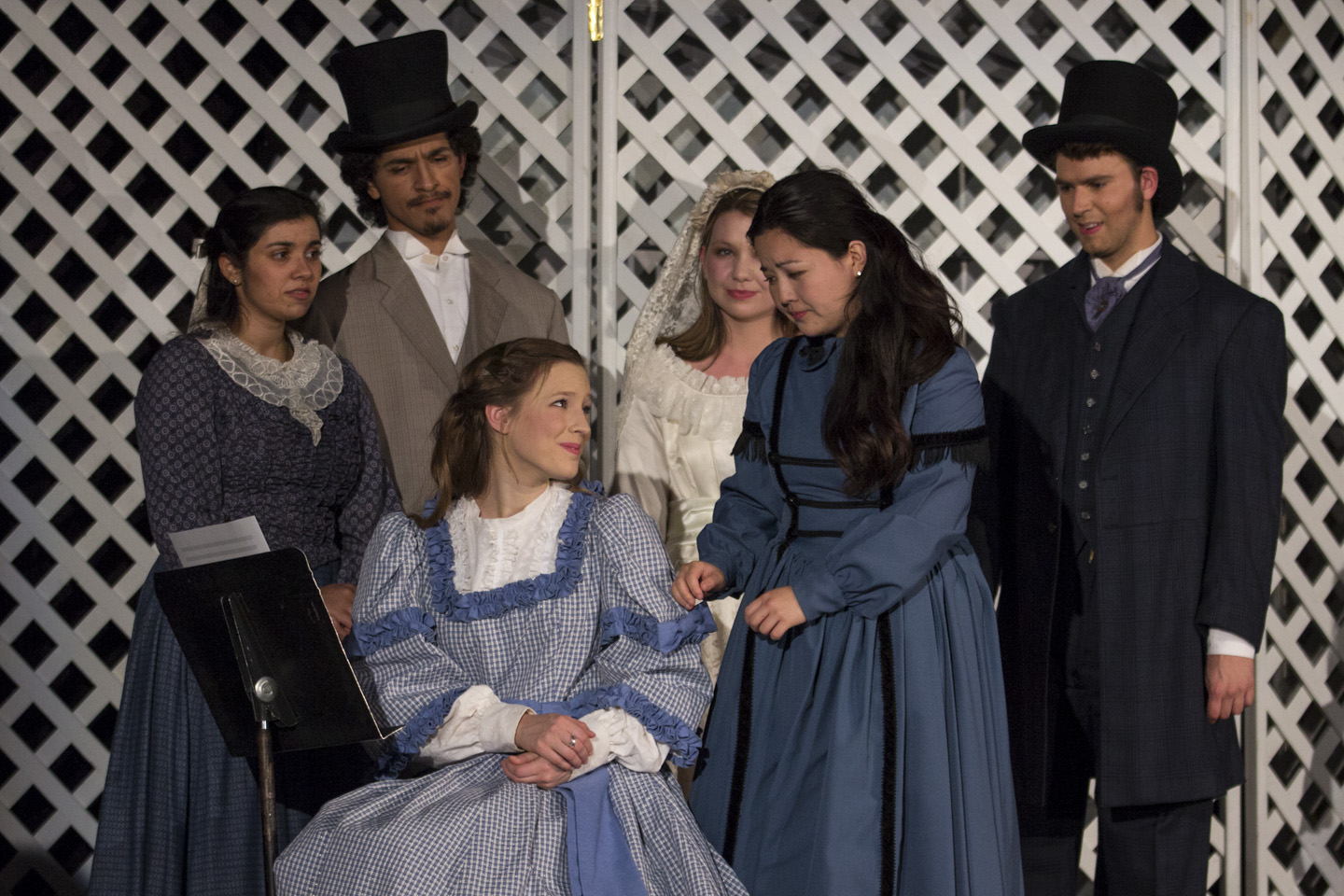After four months of rehearsal, the literary classic “Little Women” will gain new life for the next two weekends as the Conservatory of Music prepares for an opera which will be performed by two separate casts. Despite the extra work caused by a diverse range of vocal talent, the experience has been greatly rewarding, Jeanne Robison, the Conservatory’s opera theater director, said.
Cast inspired by their characters
The opera resonates with Katelyn MacIntyre, a graduating senior vocal performance major who plays Beth in one of the casts. Beth is weak after suffering from scarlet fever, a struggle with which MacIntyre can partially identify.
“In addition to my visual impairment, I’ve also dealt with kidney failure,” MacIntyre said. “I was kind of at a point where I didn’t know what my life would hold, and when I think about Beth, it’s kind of like those months before my transplant.”
Although her kidney transplant was successful, she continues to live with congenital blindness, a condition she has dealt with all her life. The theme of hopefulness and strength in the midst of trial that is prevalent in this character inspires MacIntyre.
Opera deals with relatable themes
Robison chose “Little Women” because she knew she had the right singers for the production, unaware that Theater 21 was performing the play version in the fall of 2012. There were enough capable female singers to double-cast the female roles in the opera, she said. She praises the opera for its accessibility, as it deals with themes of change and trial. The novel is known for containing very prominent religious themes and teaching, but Robison observes that these appear less explicitly than in the stage and film adaptations.
Kevin Garnica, the head staff accompanist for the opera, echoes these sentiments.
“Who hasn’t really experienced the process of change over time?” Garnica said. “It’s very poignant to me, and I think the music reflects that bittersweetness of life, which is that things always go forward.”
In “Little Women,” composer Mark Adamo focuses his adaption on Jo, one of the sisters in the play. Resistant to the change occurring in her family, her main struggle throughout the story is to come to terms with her fears of growing apart from her sisters.
“My hope for the students is that it will open people’s mind to a different aspect of opera,” MacIntyre said. “It’s very real. Jo is dealing with change, figuring out her life and how she goes from one journey to the next. It deals with very real-life issues, especially as college students.”
This theme, too, is especially relevant to MacIntyre as she reflects on graduating this May. She believes that the opera’s humor, as well as the frequent dialogues between the characters and the story’s “beautiful and serious moments,” will hold students’ attention. The opera, written in 1998, is also very contemporary compared to some of the Conservatory’s productions in previous years.
Grueling practice schedule, willing cast
Both Robison and Garnica have worked with the casts last semester and throughout interterm. The groups have bonded well, said Robison, who describes the students’ camaraderie as remarkable, despite working throughout interterm and sometimes for twelve hours at a time. While some of the students are required to participate in productions to maintain scholarships, the casts include many non-performance and Music Education majors.








